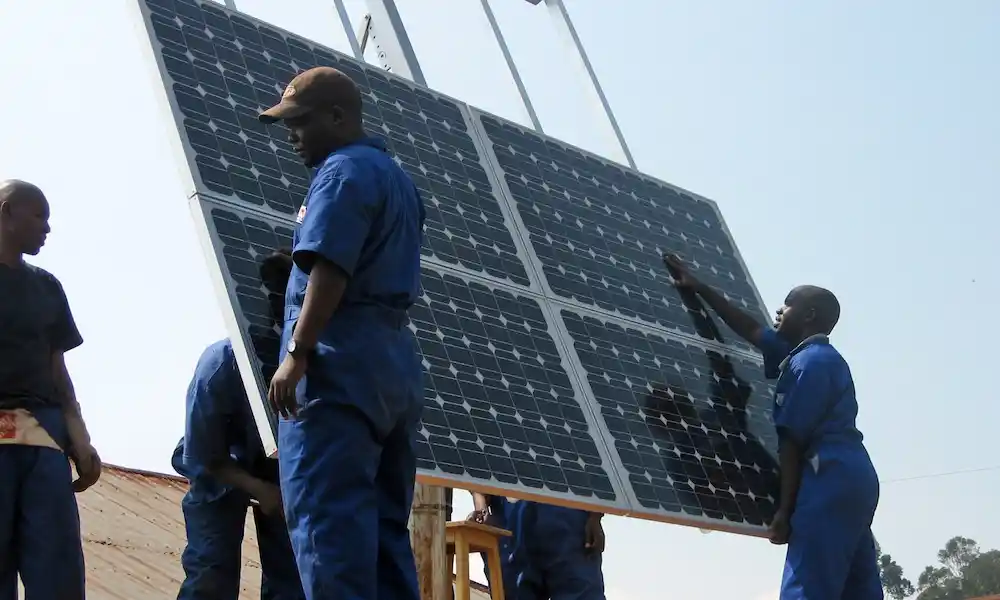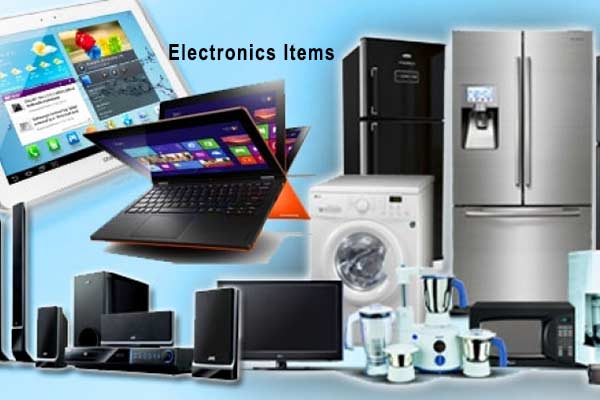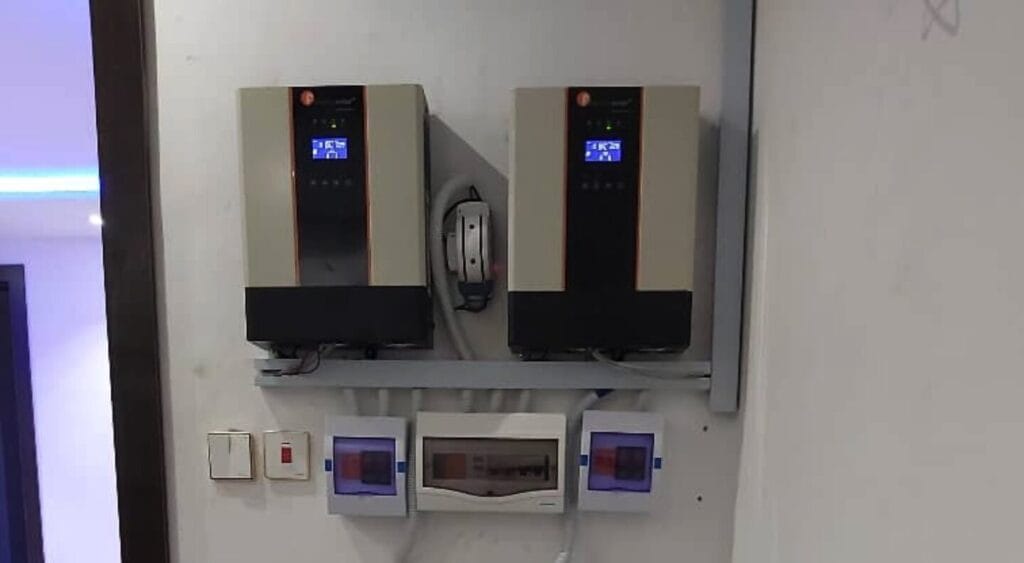As fuel prices continue to soar, frequent blackouts, and unreliability of NEPA enter into the equation, Nigerians are increasingly looking towards solar power such as felicity solar, sunking solar. But one of the most common questions remains: Can Felicity Inverter Run Fridge, TV & Fan All Day? Can solar really run a fridge, TV, and fan all day in Nigeria? The short answer is yes, but only if you have the right solar setup, in Nigeria many solar company such as sunking solar, felicity solar nigeria are leading, however many Nigeria has also been asking how much is solar panel in Nigeria?
This article breaks it all down—from cost and system size to Nigerian real-world experiences, practical tips, and how to avoid costly errors. Get switched to solar the intelligent way!
Last updated by John Tanko · Sept 13, 2025
Why Choose a Felicity Inverter?
If you’re searching for a reliable and affordable inverter for solar power systems, Felicity inverters are a solid choice. Popular across residential, commercial, and rural solar installations, Felicity inverters are known for their durability, ease of use, and compatibility with off-grid and hybrid solar setups.
A standout feature in many Felicity inverter models is the built-in MPPT solar charge controller, which improves charging efficiency and reduces system complexity. They also deliver pure sine wave output, which makes them safe for running sensitive electronics like refrigerators, TVs, laptops, and medical devices.
For homeowners and solar installers looking for a cost-effective solar inverter for home use, Felicity offers various models suited for 12V, 24V, or 48V battery systems. Their wide input range and multiple protection features—such as overload, over-temperature, and short-circuit protection—make them a smart choice for off-grid solar systems in areas with unreliable electricity.
Whether you’re powering a small home, farm, or remote business, a Felicity solar inverter delivers consistent performance without the high price tag of premium brands. For anyone looking to invest in a solar inverter with MPPT controller, Felicity provides excellent value backed by growing global support and availability.
What kind of appliances are we discussing?
Even before we get into system specifications, let’s define what load is. Below is an approximate figure of what an average house consumes:
- Fridge: 150–200 watts (intermittent use, approx. 8–12 hours/day)
- TV: 60–100 watts (typically 4–6 hours/day)
- Fan: 50–75 watts (utilized 8–10 hours/day)
Average daily energy consumption: About 2.0 to 2.5kWh per day
This will act as the basis for solar capacity calculation.
Recommended Posts
What kind of solar system can support such a load?

To be able to operate a fridge, TV, and fan with comfort during the day, your solar system should have the following:
1. Solar Panels:
- 4 to 6 panels of 400W
- Total: 1.6kW to 2.4kW
- Monocrystalline panels for greater efficiency and performance in low light conditions
2. Battery Bank:
- 2 to 4 deep-cycle batteries (12V, 200Ah)
- Lithium-ion for extended life and greater depth of discharge (greater usable energy)
3. Inverter
- 1.5kVA to 3kVA Pure Sine Wave
- Transforms DC power to AC power for use in household appliances
4. Charge Controller:
- 40A–60A MPPT for efficiency and safety is advisable
Estimated Cost (As of 2025): ₦1.3 to ₦2.2 million depending on location, brand, and quality of installation.
Customer Reviews from Nigerians using Solar Daily
Mrs. Ifeoma – Enugu:
“I installed a 2kW felicity solar system with 2 lithium batteries last year. My fan and fridge are always working throughout the day, and kids can watch TV during the night even if there is no light. It’s one of the best investments I ever made.”
Chinedu – Lagos Mainland
“I started off with just enough to power my TV and fan but upgraded after 3 months. Now I power my refrigerator, TV, fan, and even my computer. I don’t remember when I used my generator last.”
Aisha – Abuja:
“Because it is raining season, I have installed a second panel and battery for day-long backup. My system never disappointed me.”
These testimonials verify it’s not theory—Nigerians are already using solar to power major home appliances successfully.
Can Solar Energy Actually Power These Devices All Day in Nigeria?

Yes but it depends on three things:
- Sunlight Hours: Nigeria receives 5–7 peak sun hours daily.
- Battery Backup: Enough capacity should be held to get through overnight.
- System Sizing: Properly computed installation avoids overloading.
Breakdown
- Daily energy needs: ~2.5
- Solar panel manufacturing: 2.4kW system × 5 sun hours = 12kWh/day
- Battery storage: 2 x 200Ah (12V) = 4.8kWh (approximately 2.4kWh usable with lead-acid)
So in fact, with a well-designed system, your needs will be 24/7.
What about Rainy Season or Harmattan Haze?
The solar output is reduced on dusty or cloudy days. But with proper planning, your system won’t shut down.
Pro Tips
- Large panels oversized 30%
- Add another battery for extra nighttime coverage
- Regularly clean panels to avoid dust settling on them during harmattan
How to Minimize Solar Costs Without Compromising Efficiency
- Use energy-efficient appliances: inverter fridges, LED TVs
- Use DC fans: consume less energy
- Install solar timers to limit night-time use
- Avoid buying unbranded or counterfeit panels and batteries
Frequently Asked Questions (FAQs)
Can a single solar panel power a fridge?
No. One 400W panel can produce around 1.6kWh/day. It is not enough to power a TV, fridge, and fan at the same time.
What is the smallest size inverter I need?
These three units will be supplied from a 1.5kVA inverter. Go for 2.5kVA or higher for future expansion needs or for running other units.
Do I have to use batteries?
They are only used during the day and in direct sunlight. At night, they need batteries.
How long do solar batteries last?
Lead-acid: 2–4 years (with proper maintenance). Lithium: 7–12 years.
Can I start small and upgrade later?
Yes. Ensure that both your charge controller and inverter are expandable.
Solar Plan for a Small Nigerian Household
| Component | Specs |
|---|---|
| Solar Panels | 6 x 400W = 2.4kW total |
| Inverter | 2.5kVA Pure Sine Wave |
| Battery Bank | 2 x 200Ah (lithium if possible) |
| Charge Controller | MPPT 60A |
| Cost Estimate | ₦1.7M – ₦2.2M |
This setup powers your fridge, TV, and fan comfortably all day.
Tips from Installers
- Always buy from certified solar dealers
- Use same-brand batteries and charge controller whenever possible
- Don’t use vendors who don’t do load calculations
Final Thoughts: Solar Can Power Your Home—If Done Right
Absolutely, solar power can power your TV, refrigerator, and fan during the daytime in Nigeria. But for you to be successful, you’ll need to make good calculations, use quality components, and work together with appropriate experts. Don’t hurry. Take your time considering your energy needs, planning for seasonality, and buying equipment that will endure.
Thinking about solar? Start with a free load analysis or consult an experienced local installer.
Author
Top Solar Picks, founded by John, a Solar Energy Writer and Researcher with over 12 years of experience in renewable energy, is dedicated to helping homeowners and businesses make informed, data-driven decisions about solar power. John’s expertise and research pr...

